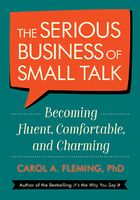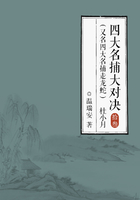For it is the nature and intention of a constitution to prevent governing by party.
-Thomas Paine, 1795
SO OFTEN IN THE PAST CENTURY, THE POLITICAL HISTORY OF America reveals a paralysis in the highest levels of our government. Legislation fails to pass, budgets are voted down, compromise seems impossible, and the problems of the nation are neither addressed nor solved. There have been brief periods, of course, when this was not the case: the New Deal is usually held up as an example of a time when American politicians came together to fundamentally transform the nature and the political landscape of our country. But in the generations since then, more often than not we have seen gridlock rather than collaboration.
"That's the way it should be!" says conventional wisdom. "The Founders of our country, the men who wrote the Constitution, wanted there to be a 'loyal opposition' to serve as a 'balance' against excessive power in the hands of any one political party or even a president."
Not only is this not true but this pervasive myth has done considerable harm to our nation-and continues to do so.
THE "LOYAL OPPOSITION"
The concept of a "loyal party opposition" has grown in the literature of the professional historians until it has assumed the stature of our most fundamental law. Not only historians but political scientists and everyone else who has sought to explain the stability of the American governmental system have looked to the origin of parties for the confirmation of our genius. The two-party system was the dominating idea in history and political science in the twentieth century. Historians and political scientists were so mesmerized by it that they, like English Whig historians, went back and reread all of American history (as well as British history) to demonstrate the continuity of the twentieth-century party system with the past. When they did so, the Revolution of 1800 dissolved. It had to.
This chapter is an attempt to redress that historical perspective and to deal with the political structure of the eighteenth century as a man of the times saw it. I am trying to make a case for using the contemporary lens of faction and of revolution as opposed to emphasizing the later emergence of political parties.
Moreover, by examining the period from a classical revolutionary perspective, it is possible to state several conditions not generally recognized.
First, the men in power from 1790 to 1801 did not even remotely conceive of a modern two-party system. In fact, the opposite is true. They wished to consolidate and perpetuate a one-party system of politics in America and were successful in their lifetime.
Second, their view of political administration was a classic political view, necessitating only one faction in power and abhorring the existence of an "opposition."
Third, because of this view it was necessary for those who were out of power to foment revolution, based on the classical political theory of "electoral Caesarism,"[4] simply to have access to or gain power. This last point will be discussed at length in the following chapters.
To develop these themes, it is necessary to realize that the eighteenth century had its own historical perspective. As one historian put it, "The most fruitful point of departure in studying their careers as statesmen is acceptance of the fact that all questions they asked and all the answers they found to them were eighteenth-century questions and answers that their intensive reading had already blocked out into a systematic pattern."[5]
These were not twenty-first-century concepts of political organization. Any attempt, therefore, to understand that "pattern," their political ideology, must examine the assumptions on which their political logic rested.
Nowhere is this truer than where the concepts faction and party are concerned. The former term belongs to the period generally up to Washington's Farewell Address, where the warnings against "factions" are often considered na?ve. The latter term (party) is more confusing. It can be synonymous with faction, but it also is a term of opprobrium. It should not be confused with the establishment of political parties as we know them today.
Thus, for clarity's sake, and rather than discuss misconceptions of the terms party and faction by authors of secondary works in American history, it best suits our purpose to establish a working definition of the terms for an eighteenth-century politician.[6]
Common definitions before the nineteenth century treated the terms similarly, beginning in the sixteenth century. The Oxford English Dictionary gives a reference to party in 1535 as "inclined to form parties or to act for party purposes; seditious." Faction was described as "violent." Sedition held a connotation of insurrection and treason against the state, both revolutionary kinds of activity. Lord Bolingbroke (Henry St. John) referred to faction as that which "hath no regard to National Interest."[7]
One dictionary used by contemporaries, An Universal Etymological English Dictionary, explained that party and faction were synonymous.[8] Samuel Johnson in his dictionary suggested two meanings that essentially merged in the examples he cited. Giving similar descriptions of the two terms, he said faction was "a party in a state" and also "tumult, discord and dissension."[9]
Violence and dissension were common to both terms. It remained for Thomas Hobbes, however, to give the classic revolutionary description to faction, common from Aristotle's time to Charles Dickens's A Tale of Two Cities. He said faction "is as it were a city within a city."[10]
This was indeed recognition that potential revolutionary activity was associated with the term, for it raised the specter of the "two-city" theory of revolution.
These definitions perhaps sum up, better than any other, the eighteenth century's understanding of both terms. Seditious, revolutionary, "always with an opprobrious sense, conveying the imputation of selfish or mischievous ends or turbulent or unscrupulous methods."[11]
Distinctions between the words party and faction were slight, if made at all. Looking upon party as both a form of political organization and as an idea of violence, "most American writers seemed to have assimilated these two senses of the word to each other."[12]
Noah Webster throws an additional light on the term party if for no other reason than because he was an ardent foe of Jefferson. His original edition defined faction in a way that touched on all that we have discussed-including the importance of revolution.
Webster said faction is: "A party, in political society, combined or acting in union, in opposition to the prince, government or state; usually applied to a minority, but it may be applied to a majority. Sometimes a state is divided into factions nearly equal. Rome was always disturbed by factions. Republics are proverbial for factions, and factions in monarchies have often effected revolutions."[13]
SEPARATING OUT FACTION FROM PARTY
The terms faction and party, though appearing synonymous to the average eighteenth-century American, were nevertheless partially separable. Not only did they connote violence, turbulence, and a revolutionary threat against the state-its administration and national interest-they also implied a relationship to one another based on the complexity of human nature and its involvement with politics.
Perhaps it is best said by an author read by virtually every educated member of the revolutionary generation. Lord Bolingbroke wrote,
It is far from being an easy matter to state to you, fairly and clearly, what the words party and faction really mean…
A Party then is, as I take it, a set of men connected together, in virtue of their having, or, which in this case is the same thing, pretending to have the same private opinion with respect to public concerns; and while this is confined to sentiment or discourse, without interfering with the management of affairs, I think it wears properly that denomination; but when it proceeds further, and influences men's conduct, in any considerable degree, it becomes Faction.
In all such cases there are revealed reasons, and a reserved Motive. By revealed reasons, I mean a set of plausible doctrines, which may be stiled the creed of the party; but the reserved motive belongs to Faction only, and is the THIRST OF POWER.
The creeds of parties vary like those of sects; but all Factions have the same motive, which never implies more or less than a lust of dominion, though they may be, and generally are, covered with the specious pretenses of self-denial, and that vehemence referred to zeal for the public, which flows in fact from Avarice, Self-Interest, Resentment and other private views.[14]
Bolingbroke, who had spent most of his political life opposing the administration of Robert Walpole, knew whereof he spoke. Acquainted with the motives of nearly all who objected to the Walpolean system, he could easily discern his colleagues' thirst for power no matter how they clothed it with patriotic disguises.
His distinction between party and faction looms important in the politics of the early republic if merely for the reason that most American statesmen complained about party and faction on the same grounds.
Two other observations by Bolingbroke about "motives" common to both terms deserve comment.
First, members of parties or factions, despite their "revealed" motives, were men obsessed with power and a "lust for dominion." It follows then that these same men, given and perhaps even creating the opportunity, are capable of reaching for power through seditious means. This would be especially true if the administration in power considered their opposition illegal.
Second, if parties become factions when their behavior affects the public realm, it is important to keep this distinction in mind. For one characteristic of eighteenth-century statesmen, little understood by twenty-first-century writers, is the absolute vehemence with which they denounced party and faction.
The reasons lay in their extreme fear and anxiety of what occurred once parties became factions and began to influence public opinion. The results were almost guaranteed: disruption of the public realm. This distinction is important because it means that historians have misunderstood the terms party and faction by imputing public action only to the former. Nineteenth-, twentieth-, and twenty-first-century historians have brushed this distinction aside; and, in fact, they have reversed the distinction between party and faction.
David Hume's The History of England, widely read in the colonies before, but even more after, the American Revolution, described the idea of faction in this manner: "Factions subvert government, render laws impotent, and beget the fiercest animosities among men of the same nation, who ought to give mutual assistance to each other."
"Founders of…factions," he wrote, should be "detested and hated."[15]
Edmund Burke, who enjoyed immense popularity among Americans, spoke of party in 1770. His "Thoughts on the cause of the Present Discontents" laid the source of England's troubles at the door of party and its relationship to the court. Burke went beyond theory to include the actual consequences of party practice:
The [party] machinery of this system is perplexed in its movements, and false in its principle. It is formed on a supposition that the King is something external to his government; and that he may be honoured and aggrandized, even by its debility and disgrace. The [court as well as party] plan proceeds expressly on the idea of enfeebling the regular executory power. It proceeds on the idea of weakening the State in order to strengthen the Court. The scheme depending entirely on distrust, on disconnection, on mutability by principle, on systematic weakness in every particular member; it is impossible that the total result should be substantial strength of any kind.[16]
In yet another famous remark, this time on the nature of a representative, Burke indicated a total unwillingness to sacrifice his views to those of any party. Here Burke presents the theory behind his observations on practical instruction from either his district or his party: "His [the representative's] unbiased opinion, his mature judgment, his enlightened conscience, he ought not sacrifice to you, to any man, or any set of men living.…But government and legislation are matters of reason and judgment, and not of inclination; and what sort of reason is that, in which determination precedes the discussion; in which one set of men deliberate, and another decide; and where those who form the conclusions are perhaps three hundred miles from those who hear the arguments?"[17]
A more devastating intellectual critique of the function of party could hardly be made. Refusing to become the creature of party, stating that the very rationale of party-with its willingness to dispense with deliberation and dialectical reason-contradicted the basic reason for government, Burke had made his decision on party.
The terms party and faction had such a long history that they were widely assumed by American statesmen to be part of human nature. This at least was the approach taken by the two men most responsible for establishing the theoretical guidelines of the early republic. James Madison and Alexander Hamilton attempted to analyze the terms in light of their influence on the political system. Their Federalist essays presented an analysis of party and faction that is more than consistent with the history of the terms we have reviewed.
Madison referred to "the violence of faction" as a "dangerous vice" characteristic of free governments.
"By a faction," he says, "I understand a number of citizens, whether amounting to a majority or a minority of the whole, who are united and actuated by some common impulse of passion, or of interest, adverse to the rights of other citizens, or to the permanent and aggregate interests of the community."
He continued, "The latent causes of faction are thus sown in the nature of man; and we see them everywhere."
Thus party, as Madison understood it, was not something of recent origin. Parties have been around since the beginning of man. And, he noted, "the most numerous party, or in other words, the most powerful faction must be expected to prevail."
He ends his analysis on this note: "To secure the public good and provide rights against the danger of such a faction…is then the great object to which our inquiries are directed."[18]
Thus Madison captured the essence of the terms as they were understood by his contemporaries: that faction and party were inescapably rooted in human nature and produced violence, zeal, animosity, oppression, and danger-all adverse to the interests of the community.
He added: "Men of factious tempers, of local prejudices, or of sinister designs may, by intrigue, by corruption, or by other means, first obtain the suffrages, and then betray the interests, of the people."[19]
His conclusion is that factions must be broken and controlled. They are, at all costs, not to be legitimately recognized or encouraged.
Madison was not alone in his aversion to party and faction.
HAMILTON AGREES WITH MADISON: PARTIES ARE EVIL
Alexander Hamilton too warns the reader: "Ambition, avarice, personal animosity, party opposition, and many other motives not more laudable than these" were typical of that "intolerant spirit which has, at all times, characterized political parties."[20]
Registering his disgust for faction, Hamilton continued, "It is impossible to read the history of the petty republics of Greece and Italy without feeling sensations of horror and disgust at the…rapid succession of revolutions by which they were kept in a state of perpetual vibration between the extremes of tyranny and anarchy."[21]
Hamilton, we might note, connects ancient history with modern America. "The tempestuous situation," he writes, "from which Massachusetts has scarcely emerged [Shays's Rebellion], evinces that dangers of this kind are not merely speculative. Who can determine what might have been the issue of her late convulsions, if the malcontents had been headed by a Caesar or a Cromwell?"[22]
In Federalist No. 77, he describes the influence of faction and party intrigue, connections, and "personal influence" in government in a way that was characteristic of the terms from classical times through the age of Robert Walpole: "Every mere council of appointment, however constituted, will be a conclave, in which cabal and intrigue will have their full scope.…And as each member will have his friends and connections to provide for, the desire of mutual gratification will beget a scandalous bartering of votes and bargaining for places."[23]
What is worth noting here is not only Hamilton's description of the influence of party and faction upon an administration but his general description of politics. He is describing the politics of England for the past century and a half.
Moreover he understood that encouraging party and faction, at the theoretical as well as the practical level, guaranteed that the emergent system of American politics would be propelled into the futile violence and dissension that had plagued every republic in history.
Throughout the remainder of his political career, Hamilton reserved a special contempt for parties. At various times he caricatured them as "the petulance of party," "the rage of party spirit," "sedition and party rage," the "unaccommodating spirit of party," the "delirium of party," the "baneful spirit of party," and the "heats of party." One of Hamilton's biographers notes that "To the end of his life he refused to believe that the party he led was a party at all. It was, rather, a kind of ad hoc committee of correspondence of men with a large view of America's destiny."[24]
THEY WERE ALL AGAINST PARTIES
Contrary to some historians' opinions, the consistency with which these statesmen held their views against faction and party in every phase of their political careers is indicative of a lifelong attachment to the antiparty cause. Moreover they were willing to write down their biases in theoretical terms, explaining in extreme detail the consequences of party activity.[25]
Indeed it is striking the quality of the men who expressed their opinions against party. They were the brightest, most reflective, often the wittiest, and easily the most philosophical men of their time. James Madison, Alexander Hamilton, George Washington, Sam Adams, John Adams, Thomas Jefferson, James Monroe, Patrick Henry, Albert Gallatin, John Jay, Thomas Paine, John Taylor of Caroline, John Quincy Adams, Benjamin Rush, Fisher Ames-the list could go on, reading like a Who's Who of the 1790s.
Fisher Ames wrote,
Faction is an adherence to interests foreign to the interests of the state; there is such a faction among us devoted to France.…There is some hope of reclaiming a very few of them; but if they travel far on the party road, or associate long with the desperados in the van, who explore the thorny and crooked by-ways, they will not remain honest. They will be corrupted, and so deeply, that, in every approach towards civil war and revolution, the dupes, who sincerely believe the whole creed of their party, will be found to go the farthest.[26]
Ames, writing in 1800, accepted the same definitions of the terms as his contemporaries. And like them he makes a connection among faction, party, and the idea of revolution. Ames also dealt with the origins and causes of party and faction exactly as did Madison and Hamilton. He asks, "Is it in the nature of free governments to exist without parties? Such a thing has never yet been and probably will never be. Is it in the nature of party to exist without passion? Or of passion to acquiesce, when it meets with opposers and obstacles? No.…Party moderation is children's talk. Who has ever seen faction calmly in a rage? Who will expect to see that carnivorous monster quietly submit to eat grass?"[27]
Ames's prose may seem lurid to us now, but to his contemporaries it was commonplace. The consequences of unbridled faction and party activity meant revolution, civil war, violence, and perhaps the most feared development of all: a change in the form of government.
John Jay, writing to Jefferson in 1786, observed, "If faction should long bear down law and government, tyranny may raise its head, or the more sober part of the people may even think of a King."[28] It was a remark that left an indelible impression on his correspondent and was to become the most crucial issue of the next fifteen years.
PARTIES DESTROY LIBERTY
Tom Paine was another writer who considered party an evil that must be kept within traditional bounds.
Writing in 1795, he states, "For it is the nature and intention of a constitution to prevent governing by party, by establishing a common principle that shall limit and control the power and the impulse of party, and that says to all parties, thus far shalt thou go and no further. But in the absence of a constitution, men look entirely to party; and instead of principle governing party, party governs principle."[29]
Paine placed the constitution as a barrier between the violence of party and the principles of republican government. He also noted in the absence of an effective constitution, even when rulers adhered to the letter and the spirit of the constitution, the spirit of party will destroy those principles. This is an important observation, as it demonstrates the reasoning that Paine, as well as most of his colleagues, agreed on: party, if allowed to develop, would inevitably destroy the constitution, the principles of republican government, and the form of the republic itself.
This theme is important because it constitutes the main thrust of Jefferson's intriguing statement: "The Revolution of 1800…was as real a revolution in the principles of our government as that of 1776 was in its form."[30] The reader will do well to keep Paine's construction in mind as he ponders the ideas of faction and revolution.
THE ONE-PARTY STATE
James Monroe, one of Jefferson's closest confidants, urged Jefferson in 1801 to formally create a one-party state. He wrote, "This public expects some tone to be given your Administration immediately. There is a conflict of principle, and either democracy or royalty must prevail. The opposing parties can never be united…because their views are as opposite as light and darkness."[31] Monroe, who took an unusually hard line, believed the opposition could not be reconciled; therefore it must be controlled.
Another revolutionary figure, a Virginian, but one who could scarcely be considered a confidant of Jefferson's, also shared a horror of faction and party. Writing to Jefferson in 1799, anticipating the crisis of the approaching revolution of 1800, Patrick Henry declared, "United we stand, divided we fall. Let us not split into factions which must destroy that union upon which our existence hangs…not exhaust it in civil commotion and intestine wars."[32]
The clearest statement on the theory of the one-or non-party state comes from a man whom everyone admired-George Washington. Father figure, warrior, model of virtue, a monument in terms of his symbolic value to the country, he was also considered a repository of wisdom and common sense. Therefore his specific warnings against party and faction in his Farewell Address merit special attention. Not only are they consistent with the definitions stated thus far, they were written in the context of a dissertation on the principles of constitutionalism and free government.
Washington notes,
The basis of our political system is the right of the people to make and to alter their constitutions of government. But the constitution which at any time exists till changed by an explicit and authentic act of the whole people is sacredly obligatory upon all. The very idea of the power and the right of the people to establish government presupposes the duty of every individual to obey the established government.
All obstructions to the execution of the laws, all combinations and associations, under whatever plausible character, with the real design to direct, control, counteract, or awe the regular deliberation and action of the constituted authorities, are destructive of this fundamental principle and of fatal tendency. They serve to organize faction; to give it an artificial and extraordinary force; to put in the place of the delegated will of the nation the will of a party, often a small but artful and enterprising minority of the community, and, according to the alternate triumphs of different parties, to make the public administration the mirror of the ill-concerted and incongruous projects of faction…
[Faction and party] are likely in the course of time and things to become potent engines by which cunning, ambitious, and unprincipled men will be enabled to subvert the power of the people, and to usurp for themselves the reins of government, destroying afterwards the very engines which have lifted them to unjust dominion.[33]
Washington's exposition needs little commentary. Suffice it to say he sees parties as natural to society, realizes they cannot be destroyed, and urges his countrymen to control them. In all of this, he is in complete agreement with the best minds of his time.
While we have examined in detail the thoughts on party and faction expressed by leading statesmen of the period, we have reserved for the end of our review the comments of two thinkers and actors during the 1790s: John Adams and Thomas Jefferson.
Adams, throughout his long career, had written and spoken out against the influence of faction and party. As early as 1780, he wrote two truly prophetic sentences, as strong an indictment of party as anyone could possibly write: "There is nothing which I dread so much as a division of the republic into two great parties, each arranged under its leader, and concerting measures in opposition to each other. This in my humble apprehension is to be dreaded as the greatest political evil under our constitution."[34]
Once Adams had reached the pinnacle of his own power, he raised the issue in his Inaugural Address, saying we must "preserv[e] our Constitution from its natural enemies, the spirit of sophistry, the spirit of party…[and] the profligacy of corruption."[35]
In another prophetic line, his address dealt with the relation between party and elections. He said, "We should be unfaithful to ourselves if we should ever lose sight of the danger to our liberties if anything partial or extraneous should infect the purity of our free, fair, virtuous, and independent elections. If an election is to be determined by a majority of a single vote, and that can be procured by a party through artifice or corruption, the Government may be the choice of a party for its own ends, not of the nation for the national good."
In correspondence with Jefferson, Adams said, "Every one of these Parties [monarchical, aristocratical, and democratical], when possessed of power, or when they have been Undermost, and Struggling to get Uppermost, has been equally prone to every Species of Fraud and Violence and Usurpation."[36]
While Jefferson agreed with every line of his friend's complaints, he probably would not have expressed himself so pungently. But beginning in 1789, he left a trail of evidence against party and faction that, over the years, adds up to the most severe indictment by anyone against the role they played. Jefferson characteristically began his onslaught by casting his opposition in philosophical and moral terms. Writing to a friend who attempted to sound him out as to whether he was a party member, Jefferson advised him: "I am not a Federalist, because I never submitted the whole system of my opinions to the creed of any party of men whatever, in religion, in philosophy, in politics, or in anything else, where I was capable of thinking for myself. Such an addiction is the last degradation of a free and moral agent. If I could not go to heaven but with a party, I would not go there at all."[37]
In 1798 Jefferson wrote John Taylor of Caroline an analysis of party:
Be this as it may, in every free and deliberating society, there must, from the nature of man, be opposite parties, and violent dissensions and discords; and one of these, for the most part, must prevail over the other for a longer or shorter time. Perhaps this party division is necessary to induce each to watch and relate to the people the proceedings of the other. But if on a temporary superiority of the one party, the other is to resort to a scission of the Union, no federal government can exist.[38]
Here is no categorical statement of an endorsement of party. For Jefferson being involved in politics was a matter of principle, above both party and faction.
JEFFERSON AND THE ONE PARTY STATE
This concern about principles, strangely enough, is never connected with Jefferson's first Inaugural Address. And it is that address, conspicuous by its absence in the works of those who claim Jefferson was establishing the first modern political party, that brings together his philosophy of government without party rule. On the eve of his triumph, Jefferson could afford, indeed he needed, to be conciliatory by making a plea for harmony and unity in his new administration. Those who remain in "opposition," he says, will stand as "monuments," but their opposition, it is important to notice, is equated with civil war, violence, and changing the form of government:
Let us then, fellow-citizens, unite with one heart and one mind. Let us restore to social intercourse that harmony and affection without which liberty and even life itself are but dreary things.…During the throes and convulsions of the ancient world, during the agonizing spasms of infuriated man, seeking through blood and slaughter his long-lost liberty, it was not wonderful that the agitation of the billows should reach even this distant and peaceful shore; that this should be more felt and feared by some and less by others, and should divide opinions as to measures of safety. But every difference of opinion is not a difference of principle. We have called by different names brethren of the same principle. We are all Republicans, we are all Federalists. If there be any among us who wish to dissolve this Union or to change the republican form, let them stand undisturbed as monuments."[39]
Jefferson's comment "We are all Republicans, we are all Federalists" is an appeal to every citizen to forsake party and return to the original principles of the American Revolution, the Constitution, and the republic-principles which, as Jefferson viewed them, rise above party and are the common property of everyone. Years later Jefferson would recollect the "sad realities" of the years before his successful drive for the presidency and remark, "I fondly hope we may now truly say, 'we are all republicans, all federalists,' and that the motto of the standard to which our country will forever rally, will be, 'federal union, and republican government.'"[40]
This then appears to be the true meaning of Jefferson's oft-quoted statement. What he expected was not the continuation of the Federalist party in opposition but the recognition by those Federalists that they had a dual responsibility to the government: to uphold the principles of federalism (the division of the Union's power into state and national jurisdictions) and the principles of republicanism (guaranteeing the people's right to self-government through the representative system). This was a central theme of his revolution: the renewal of a decentralizing process that had begun with the American Revolution. Nearing the end of his address, Jefferson makes an explicit connection between the principles of the American Revolution and those of his republican victory. In Jefferson's mind there was no difference:
These principles form the bright constellation which has gone before us and guided our steps through an age of revolution and reformation. The wisdom of our sages and blood of our heroes have been devoted to their attainment. They should be the creed of our political faith, the text of civic instruction, the touchstone by which to try the services of those we trust; and should we wander from them in moments of error or of alarm, let us hasten to retrace our steps and to regain the road which alone leads to peace, liberty and safety.[41]
After Jefferson came into power in 1801, he wrote to a friend, confirming his long-held antiparty bias: "I learn from all quarters that my inaugural Address is considered as holding out a ground for conciliation and union.…I was always satisfied that the great body of those called Federalists were real Republicans as well as federalists."[42]
A dozen years later, Jefferson placed his views in a philosophical and historical perspective:
To me then it appears that there have been differences of opinion, and party differences, from the first establishment of governments, to the present day; and on the same question which now divides our country; that these will continue thro' all future time: that everyone takes his side in favor of the many, or of the few, according to his constitution, and the circumstances in which he is placed: that opinions, which are equally honest on both sides, should not affect personal esteem, or social intercourse: that as we judge between the Claudii and the Gracchi…of past ages, so, of those among us…the next generations will judge, favorably or unfavorably.[43]
Jefferson's letter might have been written for posterity, as it places considerable confidence in the judgment of future generations. He believes, of course, that history will vindicate the stand he and Adams took on party. We might also note the historical perspective that Jefferson reveals. The Gracchi brothers, who, two thousand years before, had dealt with party agitations of a similar nature, had, according to their constitutions, taken the side of the people. Jefferson, it seems, identified with them and not with Appius Claudius Caecus, one of the despotic emperors in Roman history. This identification was "natural," as the Gracchi had provided the model for Jefferson's democratic Revolution of 1800.
Jefferson's final and complete statement on party was made to the Marquis de La Fayette in 1817. Relating the facts of the aftermath of the War of 1812, Jefferson told his friend that the "the best effect has been the complete suppression of party."
The election of James Monroe was the final triumph against party: "Four and twenty years, which he will accomplish, of administration in republican forms and principles, will so consecrate them in the eyes of the people as to secure them against the danger of change."[44]
Indeed, when Tom Paine wrote, "It is the nature and intention of a constitution to prevent governing by party," he summarized the theory of an age.
The final observation is one that links the concern over party violence with the most important argument of all. As Jefferson framed the issue, it came down to a choice between "kingly government" or the principles of the American Revolution. It was a centuries-old battle in which everyone made their natural choice. Indeed he saw his and his contemporaries' efforts to construct a non-party state contained within a single ancient framework: the struggle of liberty against despotism.
And that, after all, is the story of revolution throughout history.















